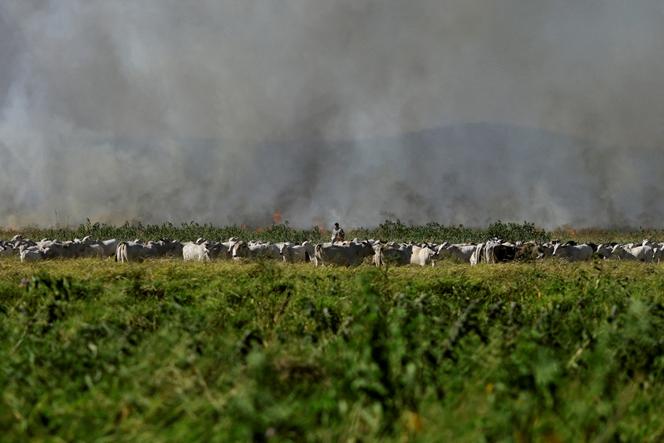


Will the impossible agreement finally break free of the deadlock? On October 23, at an economic forum in Faro, Portugal, Spanish Prime Minister Pedro Sanchez said that the European Union was "very close to concluding" the free trade agreement with the Mercosur trade bloc countries (Argentina, Paraguay, Brazil, Uruguay and Bolivia). He also promised to "work" to seal the deal on two "key dates": the G20 summit, set to be held on November 18 and 19 in Rio de Janeiro; and the Mercosur summit, in Uruguay, on December 5 and 6.
The agreement, which has been under negotiation since 1999, aims to gradually eliminate customs duties on 90% of the goods traded between the two blocs, thus creating a market of 720 million consumers. Although it had been signed by both parties in June 2019, far-right president Jair Bolsonaro's rise to power (2019-2022) led to the Europeans growing cold on the matter
The former leader's policy of destroying the Amazon had fueled fears that the agreement would accelerate the tropical rainforest's disappearance. According to a report by the 2020 Ambec commission, tasked with assessing the treaty's "effects in terms of sustainable development" of the treaty, its entry into force would lead to an increase in beef production among Mercosur countries, causing deforestation to rise by at least 5% per year for the first six years following the agreement's ratification.
"Cattle ranching is the main source of deforestation in the Amazon," pointed out Paulo Barreto, an expert in forest science and member of the NGO Imazon. The researcher pointed out that, in addition to the Amazon, the treaty is also likely to increase the destruction of the Cerrado, a vast savannah that accounts for 5% of the world's biodiversity as well as 93 areas of indigenous land. It has been heavily threatened by agricultural expansion, especially due to soybean production.
Since Brazilian President Luiz Inacio Lula da Silva, who is committed to climate protection, returned to power, in January 2023, negotiations have resumed. However, the EU's March 2023 addition of an annex to introduce new environmental standards into the agreement and provide for sanctions in the event of violation of the 2015 Paris Agreement's objectives has irritated Brazil. Lula, whose administration has brought about a 45.7% reduction in the rate of deforestation in the Amazon, denounced European demands as a form of "green neocolonialism," at a BRICS summit, in Johannesburg, on August 22, 2023.
You have 55.27% of this article left to read. The rest is for subscribers only.
